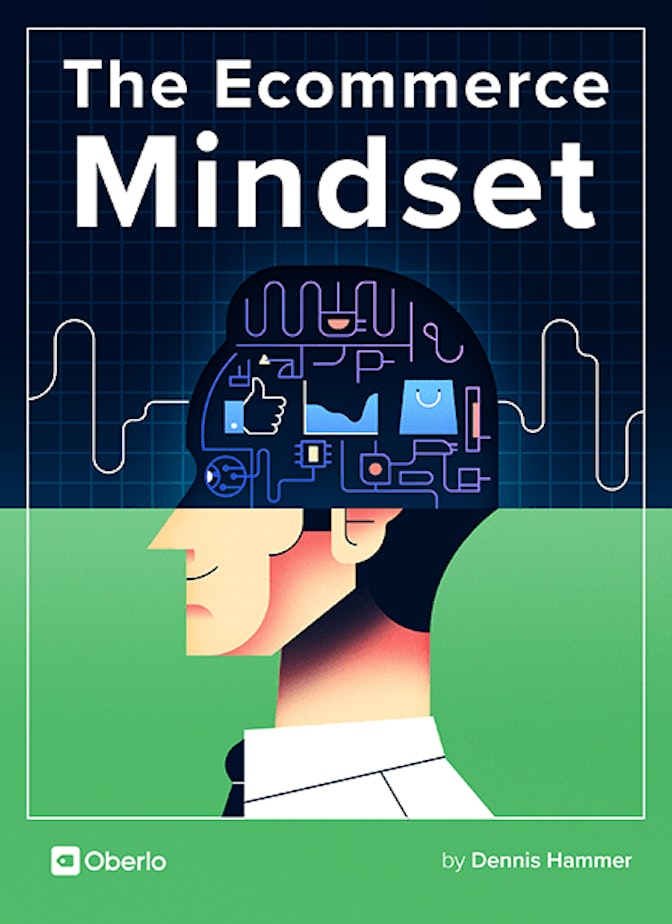We opened this book with a story about Lisa Paul Heydet, an ecommerce entrepreneur who signed a contract with a public relations and retail placement firm. She hoped they would give her brand some exposure and possibly get her products on the shelves of retail stores.
Sadly, none of it worked out.
Instead of propelling her business to success, the firm wasted 3 months of her time and a bunch of her money. When it became apparent the firm wasn’t going to deliver on the results it had promised, she had to spend more money on a lawyer to get her out of the deal.
Why did Lisa get in bed with a marketing agency? Why didn’t she grind out the marketing herself for as long as she could?
There could be several reasons…
- She wasn’t happy with the current pace of her business. She wanted to see results sooner.
- She had grown frustrated by her past failures. She wanted someone else to take over the wheel for a bit.
- She had personal commitments outside of work (like her kids), which prevented her from investing as much time into her business as she would’ve liked.
- She recognized that she can’t be good at everything, so she was willing to invest the money into specialized services, especially because she had been lured by the agency’s promises to help her grow her business.
Lisa’s concerns aren’t unique. You’ve probably thought about these issues yourself. And like Lisa, they might lead you to purchase tools, courses, webinars, and resources you don’t really need.
In fact, certain vendors rely on these concerns. They feed these concerns back to you with smart copywriting, images, and offers. They target entrepreneurs who are desperate to achieve something greater with their lives.
For instance, you might be tempted to join a paid mastermind group. It might be nice to have a group of experts and entrepreneurs like yourself tear apart your model, your store, and your marketing and give you some profound insight.
Could be worth the money, right?
Jay Fiset, founder of Mastermind to Millions, points out that while pricey masterminds can add value to your business, many just fleece entrepreneurs for money.
Jay had a client named Maya who spent $4,500 plus travel and hotel expenses to join a business coach’s mastermind group. For her money, she got four meetings with the group, once per quarter.
Her first meeting, however, was a disaster. “I was expecting rocket fuel. Instead, I got a cup of watered-down Kool Aid,” she said. “The group was very poorly curated, so despite the fact that everyone genuinely wanted to support each other, we just didn’t even understand each other’s businesses.”
After a year, she canceled her contract.
Maya’s experience mirrors those of millions of entrepreneurs every day. They spend thousands of dollars at the behest of slick salespeople and savvy hucksters on products that don’t do anything for their business, except set them back.

Don’t wait for someone else to do it. Hire yourself and start calling the shots.
Get Started FreeThe Web Doesn’t Make Things Easy
You may not be interested in joining a mastermind group, but there are plenty of services and vendors all over the web just dying to sell you something.
“Stay budget-minded and don’t spend above your means,” recommends ecommerce store owner Nina Farzin (and creator of the oogiebear). “You can spend your way out of business, so every dollar counts. Also there will be other business (B2B) that want your business. Pick and choose wisely and be leary of cold calls. Just because they charge a lot does not mean they understand your business or have your back.”
When you Google for an answer to a problem, you’ll scroll past ads for services that claim to handle it all for you. Facebook knows your interests and displays ads for companies promising to solve all your specific problems. While you’re reading a blog article, you can feel the author steer you toward their services.
As your business grows, more and more vendors will come out of the woodwork. They’ll message you on Twitter and LinkedIn. They’ll post comments on your Facebook and Instagram posts. They’ll even hunt down your email address and message you directly.
What will they try to sell you?
Social Media Marketing
Salespeople will come at you from all sides to sell social media marketing services because there’s no barrier to entry. Anyone who knows their way around popular social media platforms can call themselves a “Social Media Ninja” or “Guru.” Building and managing a social media following takes time and hard work. Gimmicks may bring followers, but not customers.
Pay-Per-Click Advertising
PPC is an important tool for ecommerce store owners, but like social media marketing, there’s no barrier to entry. Anyone can access the tools and call themselves a PPC expert. Don’t become enthralled by promises of instant returns and massive growth. Also worth keeping in mind: PPC guys don’t control your website. They can send traffic, but they can’t promise conversions.
Bookkeeping/Accounting
Accounting is obviously an important part of running a successful ecommerce store (so important, in fact, we devoted an entire chapter to it in this book.) Plenty of helpful vendors will offer to handle your finances too.
But as an entrepreneur, you should manage your own finances for two reasons:
- Many software tools are available today to automate most of your bookkeeping (like QuickBooks, Xero, and Zoho). Shopify also offers numerous apps that can help you organize your finances.
- If you outsource your money management from the beginning, you’ll never understand how to do it yourself in case your accountant retires or gets hit by a truck. (Plus, you’ll never know how to tell if your money manager is stealing from you!)
Customer Service
Plenty of professionals can do a good job serving your customers. They’ll even abide by your policies and procedures. But when your business is young, it’s crucial that you interact with your customers directly, even on boring topics like refunds and product questions. These valuable interactions can help you learn more about your customers. Hiring someone to handle these tasks puts a barrier between you and your customer, one you can’t afford when you’re trying to learn more about them.
Besides, the customer service representatives these companies use are often based outside of your home country. They usually don’t speak your language with a fluency you might be comfortable with, which sometimes creates poor experiences for your customers (and a negative impression).
Content Marketing/Blogging
Content is an effective way to reach people, but it’s not as useful for B2C ecommerce stores as it is for B2B companies, unless your products solve a specific problem.
For instance, there’s plenty of content to create around survivalism or outdoor living. But you’d struggle to get your content seen if you wrote about men’s clothing in general.
Nevertheless, content marketers do send pitches, claiming they can launch you to the first spot on Google’s search results. (No one can promise that.)
Don’t Be Afraid to Hire
That said, don’t be afraid to hire a vendor or service provider if it makes sense financially. In most cases, this means resisting the urge to outsource anything until you have a steady, dependable stream of income.
It also means waiting to outsource until you can actually afford the service. Don’t buy into a service with the expectation it will pay for itself. For example, don’t pay someone to manage your Instagram account if you need this month’s sales boost to pay the vendor’s invoice. Wait to hire until you can afford the vendor on your own.
If you really want to use a vendor to outsource or automate something, consider the service’s features carefully. Do they meet your needs? Will they solve your problem? Do you understand all the associated costs? Can you walk away from the arrangement if it doesn’t suit you?
Verify everything a salesperson says to you.
If they say, “We can double your Instagram following in 60 days,” find one of their customers who’s received that service. Ask if them if it met their expectations; if they received what was promised. If you don’t like the answers, assume the vendor’s promise is an empty one.
Most importantly, don’t allow yourself to get stuck in an expensive contract, with no way out. Only hire services that let you pay on a monthly basis. This way, you can end the arrangement if you don’t think it’s worth your money.
Learn to Say “No”
As a business owner, you’ll spend a lot of time saying “No.”
Don’t worry about hurting the “right” people’s feelings. You’re running a business. If you have to, feel free to hit those “Block User” and “Report Spam” buttons.
You can say “No” to spammy, fly-by-night companies that message you in broken English. You’ll say it to friends and mentors who want to “bring you in on an amazing opportunity.” You’ll say it more often as your business grows, and hungry vendors begin eyeing you as a prospect.
Your business is yours alone. You are the driver. Don’t let anyone sell you on something you aren’t comfortable buying.



